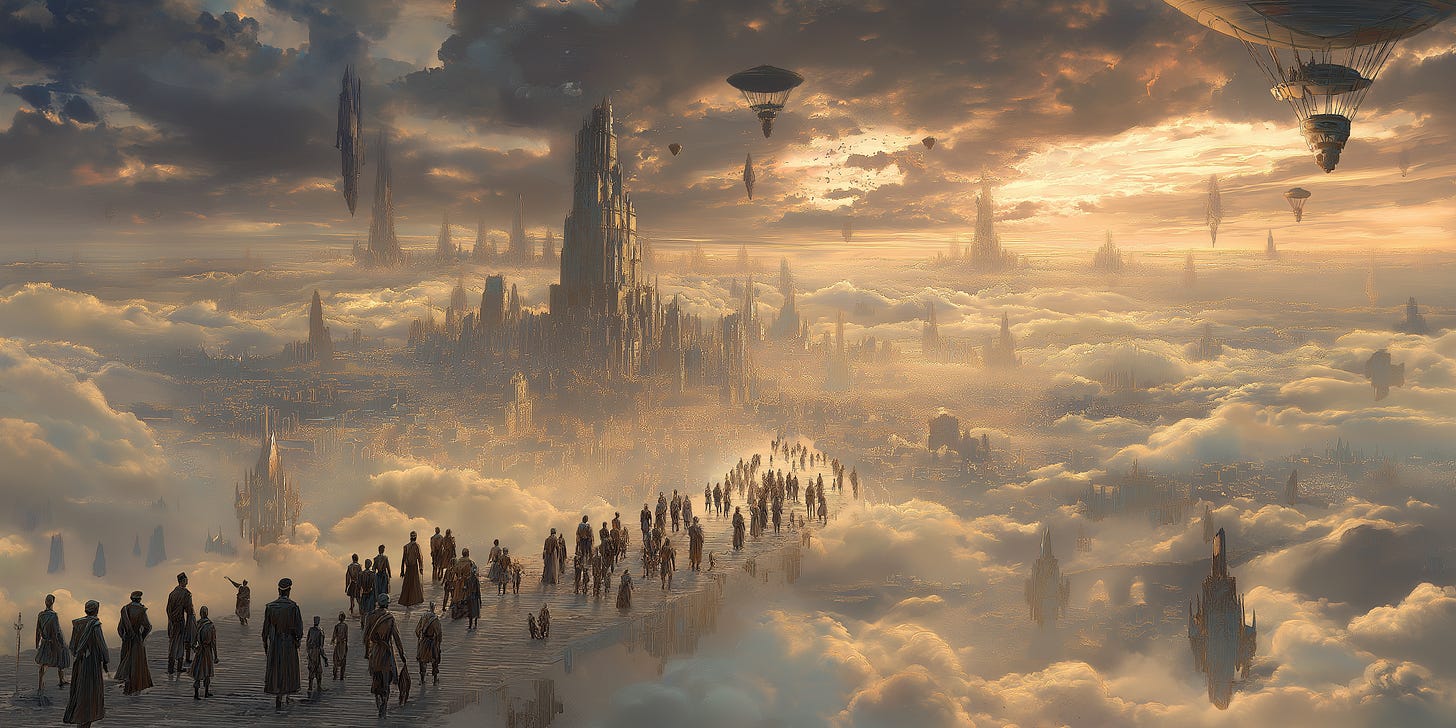#42 | Challenges of a "post-work" world
Why I don't think the "40-hour work week" is going anywhere
Thinking about “Post-Work”
I’ve recently been keen on thinking about “post-work” and had coincidentally stumbled upon
’s piece and ’s as well. I’ve also been following for a while and share their fascination with wondering: now that AI and automation is here, what could a future world look like? Personally though, my own opinion is I doubt the 40-hour work week will go anywhere.Keynes and Washing Machines
For anyone interested in replying, here’s my take: Keynes had famously predicted back in 1930 that within 100 years, because of productivity gains, humans would be working “fewer than three hours” a week. But nearly a century after Keynes’s initial prediction, folks were still working the same 40-hour weeks. Despite new inventions like the washing machine, Americans still found themselves trapped in a very not “post-work” world. Why? A lack of imagination? Something else?
My personal theory: it was never about the work. But rather, formal employment is the chief mechanism by the state to maintain macro-socioeconomic stability among the population.
Even if all anyone did was show up at Graeber-style, “BS Jobs” every day from 9-5, I believe there’s still immense value in formal employment through the lens of the state because it provided a holding container for the general population. It provides structure and an activity to occupy time. In the absence of formal work, people often imagine they would spend every single day pursuing what pleased them. And while the generative segment of the human population may thrive in this environment, I also believe there exists a substantial majority of the population who are more consumptive in nature and their joys largely stem from consumptive activities: binging Netflix, playing video games, shopping, eating out, so forth. For these people, it’s wholly unclear to me what a “post-work” world would look like. Capitalism may have many issues, but it does solve the allocation question. eg. In a world where people didn’t work, for people who wished to travel, where would funds for discretionary spending come from? Does the state decide? Some other entity?
“Good work” is not for everyone
People are different. Some only work if they love what they do. They accept a riskier life and higher likelihood of struggle if it means they can follow their bliss. Others are less romantic about it; they work to pay the bills. Mercenaries may not love what they do, but can tolerate the job as long as it gives them means to ends they feel worthy (raising a family, owning a house/nice things, traveling/experiences, etc). I like capitalism because I think our current system already supports this structure. We don’t need to reinvent the wheel; people who love “good work” are already doing it.
Anyway, just thought I’d put this out there! If anyone’s interested, please do let me know; I would love to write essays back and forth with you! 🙂 I usually keep my pieces to ~500-700 words and am looking for fellow co-conspirators to explore these ideas. Would love to engage in a dialogue and change my mind. 📝


You know I love being your co-conspirator.
This thought experiment has been ruminating in my mind as well. I don’t think we’re anywhere near AGI replacing most of what humans can do, but in 20-30 years? Yea, we might be there entirely.
The pessimistic part of me expects the government/society to find ways to continue keeping human beings busy. Idle hands are not good for governmental stability.
What form this busy takes is where I find myself debating. Will we all focus on passion projects that seem to be more artistic in nature? Will we simply oversee the robots and make sure they don’t kill us? Will we go back to our roots and live simpler lives? I’m dying to find out.